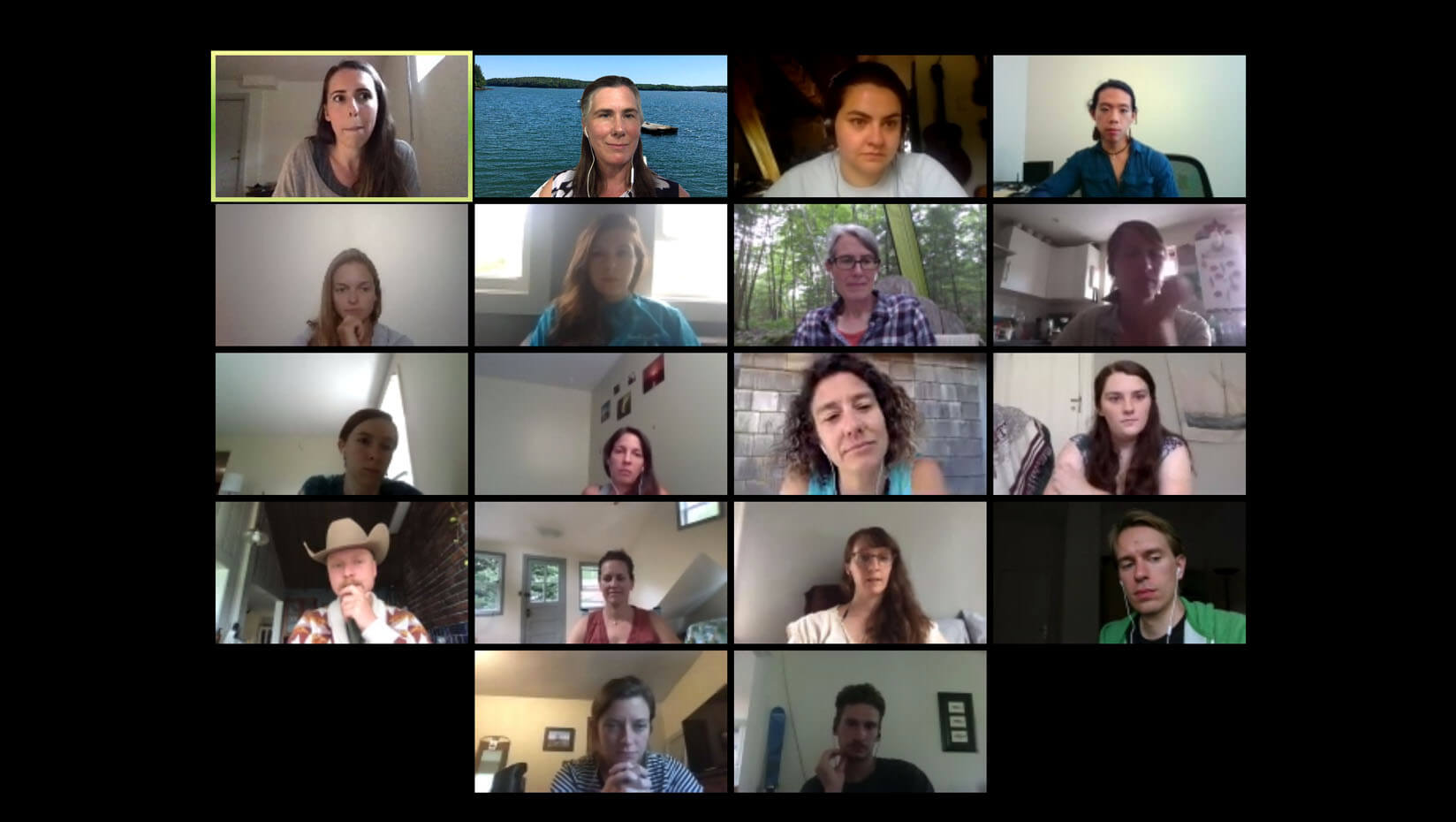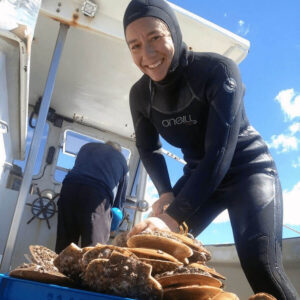
Marine science course connects distant students of sustainability science
In spring 2020, as the world locked down in response to COVID-19, Darling Marine Center director Heather Leslie considered at what moment to cancel the full summer of field courses planned at the University of Maine’s marine laboratory in Walpole. Knowing many UMaine graduate students were looking forward to immersing themselves in the interdisciplinary course she planned to teach, she took a deep breath and imagined how to create something different, yet still meaningful, online.
Leslie and her co-instructor, Kara Pellowe of the Stockholm Resilience Centre, transformed what they had designed as a three-week field course into a 10-week online graduate seminar. Drawing on examples from their research on small-scale fisheries in Maine and northwestern Mexico, the instructors guided students through interactive lectures and discussions focused on interdisciplinary research design, natural and social science research methods, and the research related to team science, collaboration and communication.

Thanks to the online delivery of the course, students could log on from anywhere, and did, from across 12 time zones from as far away as Bremen, Germany and Manoa, Hawaii. The instructors had planned on 12 students participating, but were able to enroll 17, from UMaine and six other institutions in the United States and Germany.
“This course came at a critical time,” says Leslie. “It gave us an opportunity to share knowledge and research experiences, and to support students as they reenvisioned their work. Many were in the research design phase of their thesis projects, and the pandemic was really disruptive, upending fieldwork, course plans and collaborations.”
Struan Coleman, a second year master’s student in marine sciences, joined the course from his family home in New York for the first few sessions and then later from his residence near the Darling Marine Center, in Damariscotta.
“This course forced me to think about my research in a novel way,” Struan said. “I was exposed to new social science and ecological methods that clarified many of the challenges that I’ve been facing with my work.”
Leslie and Pellowe plan to offer SMS 598 — Interdisciplinary Methods for Social-Ecological Systems Science as a two-credit synchronous online course in summer 2021. Learn more about this course and other UMaine Summer University offerings online.
Contact: Matthew Norwood, matthew.norwood@maine.edu, 207.563.8220
